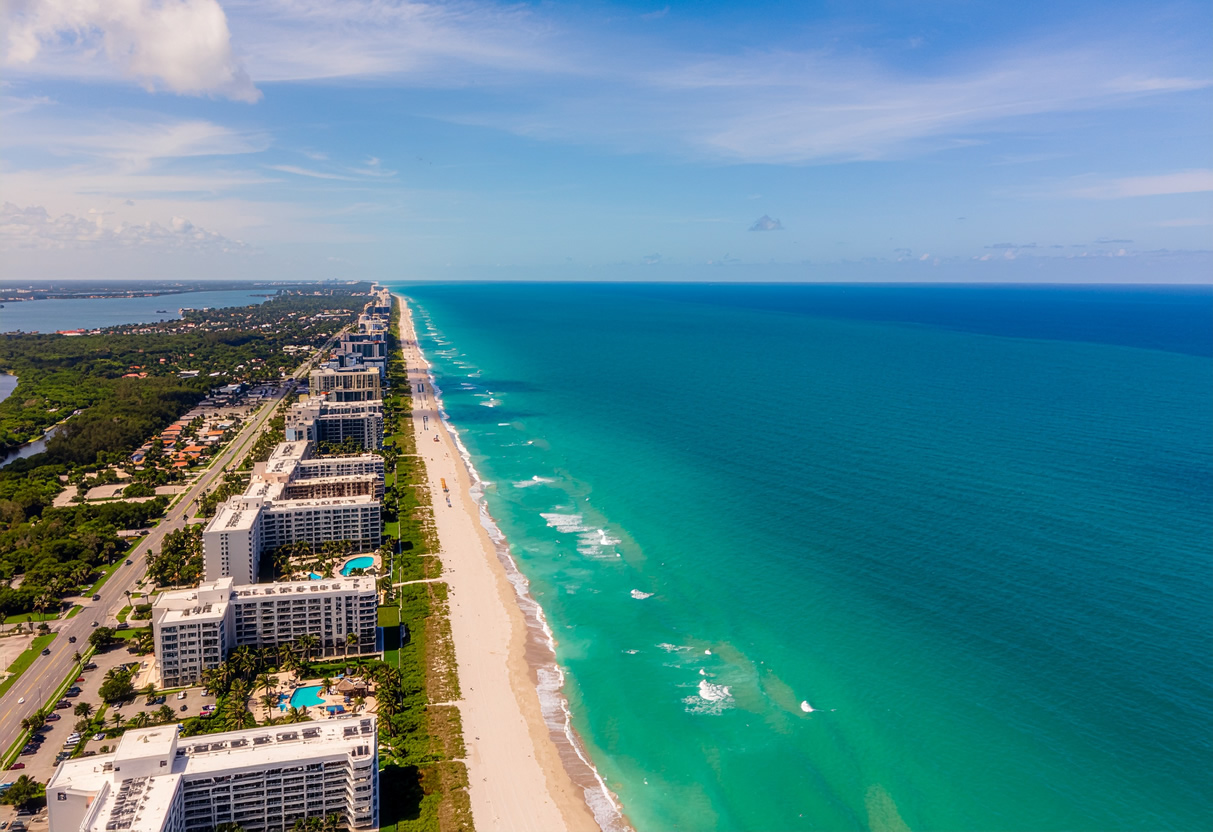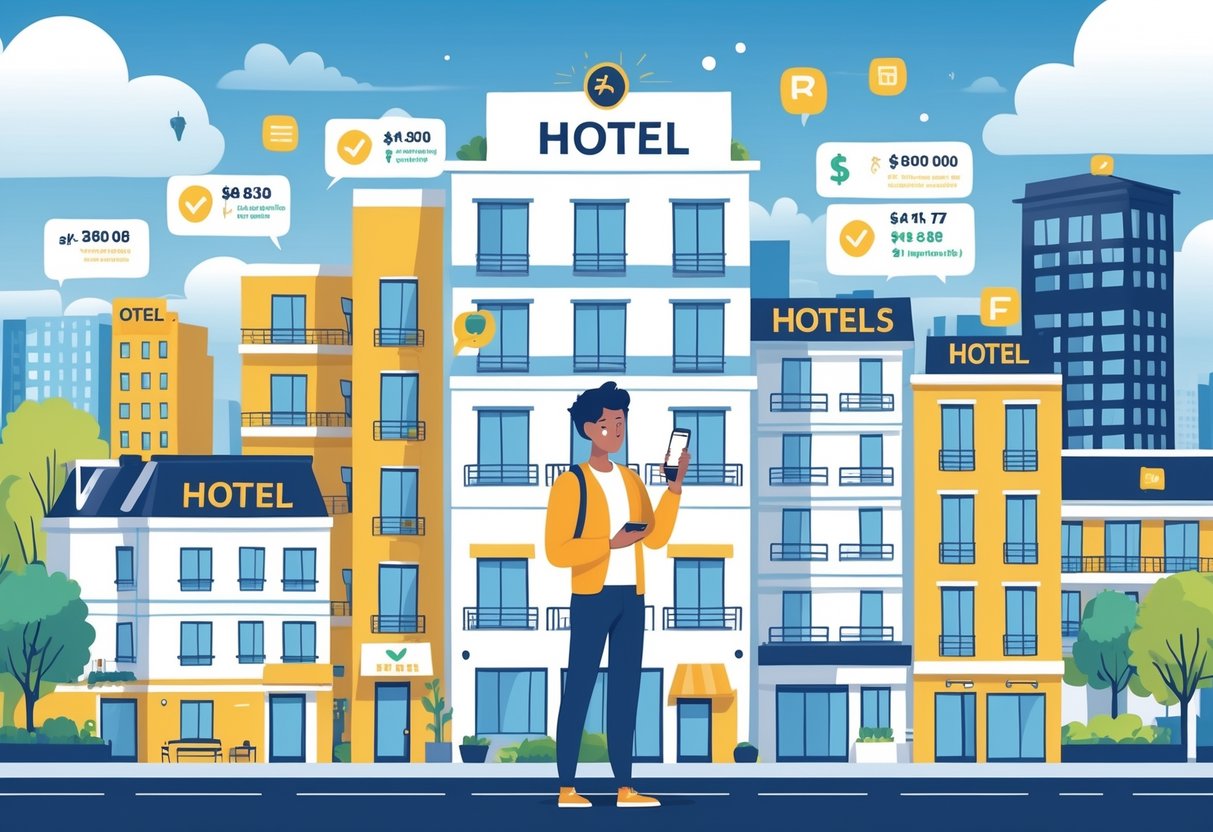
Analyzing Hotel Types and Unique Features

Travelers can choose from a wide range of hotel categories, each with its own amenities, services, and price points. The right decision depends on the specific needs of the traveler, the nature of the trip, and their desired experience.
Luxury Hotels vs. Budget Hotels
Luxury hotels focus on providing a premium guest experience, offering spacious rooms, fine dining, 24-hour concierge, wellness centers, and attention to detail at every level. Guests can expect high thread-count linens, exclusive toiletries, and a broad selection of specialized services and amenities.
Many luxury hotels also provide on-site spas, state-of-the-art fitness facilities, and multiple fine dining restaurants.
In contrast, budget hotels cater to value-conscious travelers. While rooms may be more basic, these properties aim to provide cleanliness and essential conveniences at a lower price.
Budget hotels often include complimentary Wi-Fi and breakfast, and may be part of well-known chains such as Clarion that focus on dependability and cost savings. The key differences typically involve room size, service level, and available amenities.
Boutique and Business Hotels
Boutique hotels are typically small, independently operated properties known for their unique design, personalized service, and distinctive atmosphere. Guests staying at a boutique hotel can expect themed décor, locally inspired art, and a focus on local culture.
These hotels are often located in vibrant neighborhoods and provide an intimate setting with tailored guest experiences.
Business hotels, on the other hand, are designed to meet the requirements of corporate travelers. They are usually situated in central commercial areas and feature amenities such as in-room desks, fast Wi-Fi, meeting rooms, and business centers.
Business hotels prioritize efficiency, offering express check-in, daily laundry services, and convenient access to transportation hubs.
For more details on how hotels are classified by type, see this complete guide to hotel classification.
Understanding Value and Pricing

Choosing a hotel requires careful attention to value and pricing, as costs can add up quickly and impact a traveler’s budget. Key considerations include evaluating what is included in the rate, additional charges, and whether amenities and location offer true value for the price.
Comparing Value Across Hotels
When comparing hotels, travelers should analyze what each property offers relative to its price. This includes examining included amenities such as free breakfast, WiFi, parking, and access to leisure facilities.
Some hotels might appear more affordable, but offer fewer services or have less convenient locations. Neighborhood and proximity to attractions or business centers play a significant role in perceived value.
A cheaper rate further from desired destinations may result in higher transportation costs, reducing overall value. Reviews and ratings, especially from reliable sources, can help gauge overall satisfaction and expectations.
Travelers are also advised to assess hotel type, size, and services before making a decision. For more on what to weigh, see this guide on choosing the perfect hotel.
Rates, Fees, and Hidden Costs
Room rates often do not represent final costs. Taxes, resort fees, service charges, and costs for amenities like bottled water can significantly inflate the bill.
It is essential to read booking terms carefully to identify all mandatory and optional fees. Some hotels add charges for parking, shuttle services, gym access, or early check-in.
Comparing actual totals after taxes and fees is a better way to evaluate choices than base rates alone. Travelers should seek transparent pricing and be alert to extra expenses that might affect their overall budget.
Checking cancellation policies and refund rules also helps avoid unexpected charges and maximize value for money.
Considering Accessibility and Convenience
Accessibility and convenience impact the comfort and ease of every hotel stay. Prioritizing features like barrier-free access and straightforward transit connections can make travel smoother for all guests.
Mobility Accessibility Features
Hotels with strong accessibility standards ensure that travelers with disabilities or limited mobility can navigate comfortably. Key features include step-free entrances, wheelchair-friendly hallways, elevators with braille buttons, and accessible bathrooms with grab bars and roll-in showers.
It is helpful to check if the hotel allows service animals, provides visual and hearing accessibility aids, or offers rooms with adjustable beds and wider doorways. Some hotels have parking spots close to entrances or provide ramps and special assistance at check-in.
Guests should confirm these features directly or look for details on the hotel’s website or booking platform. Staff training in assisting guests with mobility challenges is also important.
Many travelers prefer accommodations where staff are familiar with offering guidance or physical support when necessary. Room amenities and clear emergency evacuation plans designed for everyone should not be overlooked.
Transportation and Parking Options
Convenience often depends on easy access to transportation and parking. Guests may need information about nearby public transit stations, airport shuttles, or car services, especially if traveling without a private vehicle.
Hotels situated close to major attractions, city centers, or business districts usually make sightseeing or business meetings less stressful. It’s ideal for travelers to confirm whether the hotel offers free, secure parking or charges extra fees per day—especially in urban areas.
Details like 24-hour parking access, valet services, and sufficient lighting can add peace of mind. Check for clear directions to taxi stands, bus stops, or train stations.
In some locations, having convenient access to ride-sharing pickups, bicycle rentals, or even electric vehicle charging stations can further enhance flexibility during the stay. All these transportation considerations reduce unnecessary hassle and save time.



